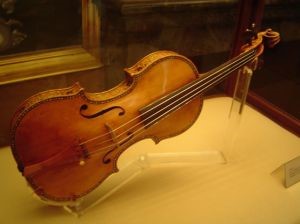As we edge closer to the Romance Writers of Australia Conference, writers across the country are polishing their 'pitches'. This is the one time of the year when a writer gets to front an editor or an agent and sell their book.
For some people it is a mind bogglingly terrifying experience, but for some it is a way of life - marketing professionals in particular ('The PITCH' was my favourite part of The Gruen Transfer,a humorous look at how the ad men sold an often unsaleable product).
 My guest this week, Belinda Williams, is a marketing communications specialist and copywriter who allowed an addiction to romance and chick-lit to get the better of her. She was named a top ten finalist in the Romance Writers of Australia Emerald Award in both 2013 and 2014 and it is interesting to see how she took her real life experience into her latest book... called THE PITCH!
My guest this week, Belinda Williams, is a marketing communications specialist and copywriter who allowed an addiction to romance and chick-lit to get the better of her. She was named a top ten finalist in the Romance Writers of Australia Emerald Award in both 2013 and 2014 and it is interesting to see how she took her real life experience into her latest book... called THE PITCH!
Over to Belinda to explain where the lines between fact and fiction blur...
PITCHING THE PITCH
My
‘Fun Fact’ isn’t something I stumbled on, nor is it a particular piece of
research I found fascinating. My Fun Fact relates to my real world experience
in marketing. In my other life I work in marketing and have done for fifteen
years. I guess I wanted to write a book set in this world and I felt the time
had come when I could accurately portray this to my readers.
In
The Pitch, Maddy runs her own
marketing agency. In real life, I’ve worked for both marketing and advertising
agencies. In The Pitch, Maddy is
pitching for a huge piece of business that could change the trajectory of her
agency. In real life I’ve pitched for business. In The Pitch, Maddy’s big potential client is a major bank. In real
life I’ve worked for financial services companies.
So
yes, there are a lot of parallels but I should stress that The Pitch is completely fictitious (and I’m not saying that to
cover myself, it’s true. Or do I mean fiction? You get my point . . .)
I
think the major motivating factor and theme for The Pitch was the desire to write about the issues around juggling
work or career aspirations with relationships because it’s a challenge so many
women face.
In
writing The Pitch, I feel like I’ve
conducted the research over a lot of years and in many different jobs. So
either it’s one of the lengthiest research projects for a contemporary romance novel,
or one of the easiest! I’ll leave it to my readers to decide how effective my
‘research’ proved.
About
The Pitch
In three years Madeline Spencer has single-handedly
grown her marketing agency, Grounded Marketing, into one of the country’s
fastest growing companies. But her success has been at the expense of her
social life, and her girlfriends have had enough. They’ll do whatever it takes,
from speed dating to blind dates, to show her there’s more to life than work.
Only Maddy is having a hard time forgetting about her
business. She’s about to pitch for her biggest client ever and the mysterious
media mogul, Paul Neilsen, has volunteered to mentor her. Maddy might just be
in with a shot of landing the account—if she can keep her mind on the job.
Working with Paul is not at all what she’d imagined,
and Maddy finds herself torn between her ever increasing workload and her
feelings for Paul. She’s discovering playing in the big league means making
sacrifices…and Maddy must decide what she can’t live without.
More About the
Author
Belinda's other
addictions include music and cars.Her eclectic music taste forms the
foundation of many of her writing ideas and her healthy appreciation for fast
cars means she would not so secretly love a Lamborghini. For now she’ll have to
settle with her son’s Hot Wheels collection and writing hot male leads with
sports cars.
Belinda lives
in Sydney and blogs regularly about writing and reading here: http://www.belindawilliamsbooks.com


















